顕彰事業
ジョン・D・ロックフェラー三世賞とブランシェット・フーカー・ロックフェラー賞は、芸術家や社会貢献家のこれまでの功績を称える賞です。受賞候補者は推薦によって選定され、また、ACCのミッションに関連する分野における功績と継続的なリーダーシップを顕彰し、賞は贈呈されます。
ジョン・D・ロックフェラー三世賞
ジョン・D・ロックフェラー三世賞は専門領域における功績を称え、芸術家個人に贈られる賞です。ジョン・D・ロックフェラー三世のアジアの芸術文化への生涯に渡る造詣を記念しています。
ACCはこの賞を、アジアにおけるビジュアルおよびパフォーミング・アーツへの国際的理解や創作、研究において際立った貢献をしたアジアおよび米国の個人に隔年で顕彰しています。受賞者の仕事の発展と継続に資するため、現在賞金として5万米ドルを授与しています。
受賞者を選択
- Takashi Murakami (2024)
- Cai Guo-Qiang (2021)
- Midori (2021)
- 隈 研吾 (2019)
- シェン・ウェイ (2017)
- ダク・ヒュンヨ (2015)
- アムナ・クスモ (2013)
- ピチェ・クランチュン (2013)
- チナリー・ウン (2013)
- サミナ・クラエシ (2010)
- ラタン・ティアム (2008)
- ネスター・O・ジャーディン (2007)
- リン・フワイミン 林懐民 (2006)
- メラ・ジャルスマ、ニンディティヨ・アルディプルノモ (2005)
- ジュディ・ミトマ (2003)
- ヤン・メイキ 杨美琦 (2002)
- エレン・スチュワート (2000)
- プロエウン・チエン (1999)
- グエン・ヴァン・フイ (1998)
- ベアテ・ゴードン (1997)
- マ・チェングアン 馬承源 (1996)
- 朝倉 摂 (1995)
- ドナルド・リチー (1993)
- カピラ・ヴァッツァヤン (1992)
- チョウ・ウェンチュン 周文中 (1991)
- シャーマン・E・リー (1990)
- ジェームズ・R・ブランドン (1988)
- ホセ・マセダ (1987)
- ジョン・M・ローゼンフィールド (1986)
- Takashi Murakami (2024)
- Cai Guo-Qiang (2021)
- Midori (2021)
- 隈 研吾 (2019)
- シェン・ウェイ (2017)
- ダク・ヒュンヨ (2015)
- アムナ・クスモ (2013)
- ピチェ・クランチュン (2013)
- チナリー・ウン (2013)
- サミナ・クラエシ (2010)
- ラタン・ティアム (2008)
- ネスター・O・ジャーディン (2007)
- リン・フワイミン 林懐民 (2006)
- メラ・ジャルスマ、ニンディティヨ・アルディプルノモ (2005)
- ジュディ・ミトマ (2003)
- ヤン・メイキ 杨美琦 (2002)
- エレン・スチュワート (2000)
- プロエウン・チエン (1999)
- グエン・ヴァン・フイ (1998)
- ベアテ・ゴードン (1997)
- マ・チェングアン 馬承源 (1996)
- 朝倉 摂 (1995)
- ドナルド・リチー (1993)
- カピラ・ヴァッツァヤン (1992)
- チョウ・ウェンチュン 周文中 (1991)
- シャーマン・E・リー (1990)
- ジェームズ・R・ブランドン (1988)
- ホセ・マセダ (1987)
- ジョン・M・ローゼンフィールド (1986)

2024
Takashi Murakami
Artist, Founder and President
Kaikai Kiki Co., Ltd.
Born in Tokyo in 1962, Murakami completed the doctoral program in Fine Arts at Tokyo University of the Arts in 1993. In 2000, he proposed “Superflat", a concept/theory of contemporary visual culture that connects traditional Japanese art with the flatness of anime and manga while also referring to the state of Japanese society. In 2001, he established Kaikai Kiki Co., Ltd., of which he is the president.
Murakami received an ACC Fellowship in 1994, during which he participated in the International Studio Program at the Institute of Contemporary Art, MoMA PS1 in New York. In 2024, he opened Takashi Murakami Mononoke Kyoto, his first solo exhibition in Japan in eight years, at Kyoto City KYOCERA Museum of Art, where around 170 of his new works are on view. He also has approximately 120 new works reinterpreting Utagawa Hiroshige's 100 Famous Views of Edo on view at the Brooklyn Museum.
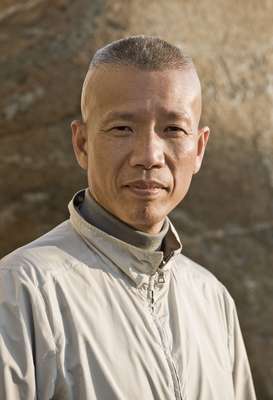
2021
Cai Guo-Qiang
Artist, Founder
Cai Foundation
Cai Guo-Qiang (b. 1957, Quanzhou, China) works across artistic mediums, including drawing, painting, installation, video, and performance. Trained in stage design at the Shanghai Theatre Academy, Cai began to experiment with gunpowder painting in his hometown, Quanzhou, and later in Japan from 1986 to 1995. Experimentation with scale and form of these gunpowder works led to the development of his signature outdoor explosion events. Drawing upon Eastern philosophy and contemporary social issues as a conceptual basis, his often site-specific artworks respond to local cultures and histories and establish a dialogue between viewers and the universe around them. His explosion art and installations are imbued with a force that transcends the two-dimensional plane to engage with society and nature.
Cai Guo-Qiang received an ACC Fellowship in 1995, during which he created his first work in the United States—a miniature mushroom cloud at the Nevada Nuclear Test Site. He has since been awarded the Venice Biennale’s Golden Lion (1999), the Hiroshima Art Prize (2007), and in 2012, received both the Praemium Imperiale and the U.S. Department of State Medal of the Arts for commitment to international cultural exchange. His explosive work has been featured in the 2008 Beijing Olympics opening and closing ceremonies, the Metropolitan Museum of Art (2006), the Solomon R. Guggenheim Museum (2008), and Netflix documentary Sky Ladder (2015), as well as museums throughout Europe in the traveling series Individual’s Journey Through Western Art History. This series culminated in Homecoming (2020), the first solo exhibition of contemporary art at the Palace Museum, Beijing. A generous philanthropist, Cai Guo-Qiang founded the Cai Foundation (2014) to support emerging contemporary artists worldwide. The Cai Foundation and Asian Cultural Council are proud to enter their sixth year of partnership supporting cultural exchange opportunities for the next generation of artists from Asia and the U.S.
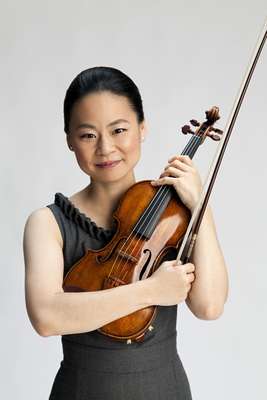
2021
Midori
Violinist, Activist, Educator
Midori (b. 1971, Osaka, Japan) is a visionary artist, activist and educator who explores and builds connections between music and the human experience. Midori breaks with traditional boundaries, which makes her one of the most outstanding violinists of our time. She began her violin studies with her mother, Setsu Goto, at an early age, and was invited at age 11 to perform with the New York Philharmonic in the orchestra’s annual New Year’s Eve concert. In the years since, she has performed with the world’s most prestigious orchestras and musicians of our time, including Leonard Bernstein and Yo-Yo Ma. During the 2021-2022 season, Midori performed the world premiere of Detlev Glanert’s Violin Concerto No. 2 with the Royal Scottish National Orchestra and with NDR Elbphilharmonie Orchestra; she also appeared and recorded with the Festival Strings Lucerne; she performed on tour in the US, Europe and Asia.
Midori is deeply committed to furthering humanitarian and educational goals such as creating more equitable access to music education, particularly in developing regions and for marginalized population groups. To that end, she has founded several non-profit organizations: Midori & Friends (New York); MUSIC SHARING (Japan); Partners in Performance (PiP), which brings chamber music to smaller communities in the U.S.; and the Orchestra Residencies Program (ORP), which supports American youth orchestras. In 2009, MUSIC SHARING received an ACC Fellowship to support musicians to participate in their International Community Engagement Program (ICEP) in Mongolia.
In recognition of her work as an artist and humanitarian, she serves as a United Nations Messenger of Peace, and in 2021, she was named a Kennedy Center Honoree. She also holds academic positions at the Curtis Institute of Music and the Peabody Institute. The most recent recording in Midori’s diverse discography is Beethoven’s Violin Concerto and two Romances with the Festival Strings Lucerne (2020, Warner Classics). She plays the 1734 Guarnerius del Gesù ‘ex-Huberman’ and uses four bows – two by Dominique Peccatte, one by François Peccatte and one by Paul Siefried.
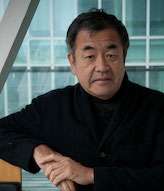
2019
隈 研吾
建築家
隈研吾建築都市設計事務所
隈研吾(1954年神奈川生まれ)は21世紀における偉大な建築家の一人です。1979年、東京大学大学院建築学科を卒業、1985年にはACCフェローシップを受賞し、コロンビア大学建築計画大学院の客員研究員としてニューヨークに滞在しました。1987年、隈氏は東京にてスペーシャルデザインスタジオを設立、また、1990年には隈研吾建築都市設計事務所を設立。2008年、慶應大学にて博士号を得たのち、2009年、東京大学大学院建築学科の教授として就任。隈氏は「日本建築の伝統を再発見」し、21世紀のものづくりへ還元する仕事を行っている。また、光と自然から多くの学びを得て、現代の建築分野に大きな革新をもたらした。
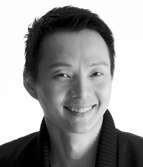
2017
シェン・ウェイ
設立者
シェン・ウェイ・ダンス・アーツ(ニューヨーク)
Shen Wei received a grant from the Asian Cultural Council in 1995 to study dance and choreography in New York and to participate in the American Dance Festival. ACC has also proudly supported Shen Wei Dance Arts with multiple grants since its formation. Internationally celebrated as one of the most gifted choreographers of his generation, Shen Wei’s expansive vision, rooted in traditional Chinese aesthetics yet strikingly international, has transformed the face of contemporary performance. Shen Wei’s work offers a unique vision bridging China and the U.S. at a moment when understanding and amity could not be more necessary to our shared future.
In China, Shen Wei is credited with having had a major influence, with others, in creating a new Chinese contemporary dance based on traditional Chinese culture, world influence, and individual creativity. Shen Wei, who has always maintained his practice as a painter and calligrapher, has been creating a series of performative installations and site-specific works that have been presented at museums in the U.S., Asia, and Europe. His paintings have been featured in solo exhibitions in leading galleries and museums around the world.

2015
ダク・ヒュンヨ
理事長
ソウル芸術大学
Duk Hyung Yoo is a prominent cultural figure in Korea and the visionary leader of the Seoul Institute of the Arts, a professional arts training academy renowned both regionally and internationally. Mr. Yoo received a series of grants from ACC in the 1960s and 1970s for such personally-transformative endeavors as study at the Dallas Theater Center, the completion of his master’s degree in theater at Yale University, and the chance to observe theatrical activities throughout the U.S. After returning to Korea permanently, Mr. Yoo took over leadership of the Korean Drama Center, founded by his father, acclaimed playwright Yoo Chi Jin. Over the next several decades, Mr. Yoo transformed the school into the all-encompassing professional arts academy now known as the Seoul Institute of the Arts (SIA). Outside of Korea, Mr. Yoo has developed robust educational and artistic links with other arts schools in Asia, the U.S., and Europe. He also spearheads SIA’s Global Hub project, which “seeks both national identity and global universality to create and promote world-class culture and arts.” The project is dedicated to creating strongholds through which Korean culture and arts can be exchanged around the world.

2013
アムナ・クスモ
ディレクター
ヤヨサン・ケローラ(ジャカルタ)
Amna Kusumo is a pioneer in the field of arts management in Southeast Asia. Through her visionary work, which has included introducing new ideas about arts administration and resource sharing, she has helped to establish a national arts infrastructure in Indonesia that has allowed various art forms from her country to be known and appreciated throughout the world. She has collaborated with the Jakarta Arts Council to create innovative international programming and to formulate policies to support the activities and development of the arts in Jakarta and throughout Indonesia.
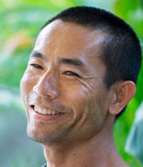
2013
ピチェ・クランチュン
振付家、ダンサー
ピチェ・クランチュン・ダンス・カンパニー(タイ)
Pichet Klunchun, born in 1971, is internationally recognized as the finest male classical Thai dancer of his generation and the individual in whom lies the greatest hope for the future continuity and vitality of his art. Trained in Khon (dance of the Thai royal court) from one of the form’s great masters, Mr. Klunchun is acknowledged by his teachers and peers to be an exemplar who combines brilliant technique, thorough knowledge of the tradition, boundless creativity, and a commitment to teaching.

2013
チナリー・ウン
作曲家
コンポーザーズ・インスティテュート・イン・アジア/カルフォルニア大学サンディエゴ
Chinary Ung is an internationally acclaimed composer, a gifted teacher, and an activist for creativity in Southeast Asia. Born in Cambodia in 1942, Mr. Ung came to the United States in 1968 to study clarinet at the Manhattan School of Music with support from the Asia Foundation. Mr. Ung went on to have a very successful career in composition and university teaching, with faculty positions at Connecticut College, Northern Illinois University, University of Pennsylvania, and University of California, San Diego, where he now holds the title of Distinguished Professor of Music. His numerous awards include a Guggenheim Fellowship, two Kennedy Center prizes, the American Academy of Arts and Letters Fellowship, and the illustrious Grawemeyer Award, music composition’s highest award.
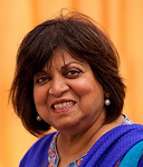
2010
サミナ・クラエシ
作家、アーティスト、デザイナー
シェパード/クラエシ・アソシエイツ(ボストン)
Samina Quraeshi (1944–2013), was an artist, author, and educator whose career spanned her native Pakistan and her adopted home in Massachusetts. Both her visual art and her five award-winning books on Pakistan took inspiration from the Sufi tradition of the Indus Valley. As a lifelong advocate for the arts and design, she served as the assistant director of the Carpenter Center at Harvard University, the director of design for the National Endowment for the arts, and the Henry Luce Professor of Family and Community at the University of Miami. Most recently, she served as the Robert Gardner Visiting Artist at Harvard University’s Peabody Museum.
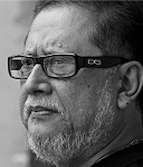
2008
ラタン・ティアム
設立者・ディレクター
コーラス・レパートリー・シアター(マニプール)
Indian playwright and theater director Ratan Thiyam is considered to be one of the most important and influential art-makers on the international theater scene. In October of 2000, New York Times critic Margo Jefferson hailed Ratan Thiyam as a “genius” and called the experience of seeing his work “transcendent.” The founder and director of the Chorus Repertory Theatre in Manipur, India, Mr. Thiyam has created a body of work that has received broad acclaim in the East and West. He is the recipient of the Sangeet Natak Akademi Award in Direction and the Padma Shri, a civilian award bestowed by the government of India.
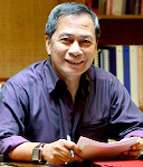
2007
ネスター・O・ジャーディン
プレジデント
フィリピン文化センター
Nestor O. Jardin is a distinguished arts advocate and educator from Manila. During his extensive career, he has championed the arts and artists of Southeast Asia and the Philippines. He has served as President of the Cultural Center of the Philippines (CCP), Commissioner of the National Commission for Culture and the Arts, and Chairman of the Advisory Council of the Philippine High School for the Arts. He is currently President of the Cinemalaya Foundation and Project Director of the CCP Complex Development Program.
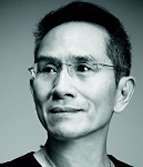
2006
リン・フワイミン 林懐民
アーティスティック・ディレクター
クラウドゲート・ダンス・シアター(台北)
Lin Hwai-Min is the founder and artistic director of Cloud Gate Dance Theater, the first contemporary dance company in the Chinese- speaking world. Heralded as “the most important choreographer in Asia,” he has been the recipient of the Taiwan National Award for the Arts, the Ramon Magsaysay Award, and the International Movimentos Dance Prize’s Lifetime Achievement Award. Time magazine has named him one of “Asia’s Heroes,” and in 2003, his piece “Moon Water” was named best dance of the year by the New York Times.
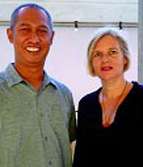
2005
メラ・ジャルスマ、ニンディティヨ・アルディプルノモ
設立者
チェメティ・アート・ハウス(ジョグジャカルタ)
Mella Jaarsma and Nindityo Adipurnomo are Indonesia-based artists and the founders of Cemeti Art House in Yogyakarta. They are at the forefront of the creative community in Indonesia, organizing several exhibitions and residencies for both Indonesian and international artists each year. Their own work has been presented widely at many international exhibitions, including the Gwangju Biennale, the Asia Pacific Triennale, and the Yokohama Triennale. In 2010, they received the Yogyakarta Biennale Art Award.
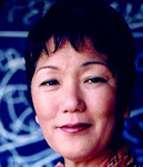
2003
ジュディ・ミトマ
ディレクター
カルフォルニア大学ロサンゼルス校センター・フォー・インターカルチュラル・パフォーマンス
Judy Mitoma founded and chaired UCLA’s Department of World Arts and Cultures, the only arts department in the United States based on interdisciplinary, international, and intercultural research with a focus on performance. She is also the founder of the UCLA Center for Intercultural Performance, whose Asia Pacific Performing Arts Exchange (APPEX) program has hosted more than 300 artists in residential retreats, performance projects, and creative collaboration.
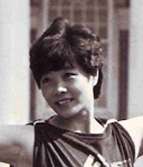
2002
ヤン・メイキ 杨美琦
設立者
カントン・モダンダンス・カンパニー 廣東現代舞團(広州)
Judy Mitoma founded and chaired UCLA’s Department of World Arts and Cultures, the only arts department in the United States based on interdisciplinary, international, and intercultural research with a focus on performance. She is also the founder of the UCLA Center for Intercultural Performance, whose Asia Pacific Performing Arts Exchange (APPEX) program has hosted more than 300 artists in residential retreats, performance projects, and creative collaboration.
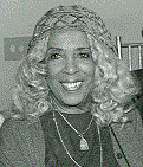
2000
エレン・スチュワート
設立者、アーティスティックディレクター
ラ・ママ実験劇場(ニューヨーク)
Ellen Stewart (1919–2011) was the founder and longtime director of the pioneering La MaMa Experimental Theater Club in New York City. She was the recipient of a MacArthur Foundation “genius” grant, a Tony Honor for Excellence in Theater, and Japan’s Order of the Sacred Treasure, Gold Rays with Rosette. She was also inducted into the Broadway Theater Hall of Fame. Ms. Stewart was instrumental in introducing to American audiences some of the world’s most influential theater artists, and she herself staged, composed, directed, and wrote librettos for original folk-opera spectacles.
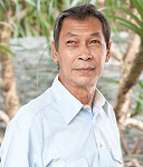
1999
プロエウン・チエン
学部長
王立芸術大学(プノンペン)、コリオグラフィックアーツ学部
Proeung Chhieng was the vice rector and dean of choreographic arts at the Royal University of Fine Arts in Phnom Penh. He was a premier dancer with the Royal Ballet of Cambodia, having joined the ensemble when he was just eight years old. After surviving rule under the Khmer Rouge, Mr. Chhieng worked to create links among the refugee communities in Thailand, the United States, and Europe, and he guided the efforts to rebuild his country’s fragmented and largely undocumented classical dance repertory.
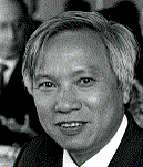
1998
グエン・ヴァン・フイ
ディレクター
ベトナム民族学博物館(ハノイ)
Dr. Nguyen Van Huy was the founding director of the Vietnam Museum of Ethnology, the innovative exhibitions of which have earned national and international acclaim. Dr. Nguyen is known for pioneering a new direction in ethnological research using a sociological approach and has taken part in many research projects in the United States. He has received the Chevalier de L’Ordre des Arts et des Lettres from the government of France.

1997
ベアテ・ゴードン
アートコンサルタント、作家
ニューヨーク
Beate Gordon (1923–2012) held tenures as the director of the performing arts programs at both Japan Society and Asia Society. She was the first civilian American woman to arrive in post-war Japan, and she helped to co-author the Japanese Constitution, which was so well conceived that it has remained unamended since it was originally written. She was notably responsible for drafting the document’s Article 24, which defined marriage as being based on mutual consent and equality of the sexes, granting rights to women at a time when social injustices were deeply embedded in societies around the world.
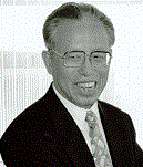
1996
マ・チェングアン 馬承源
ディレクター
上海美術館
Ma Chengyuan (1927–2004) was a Chinese archaeologist, epigrapher, and president of the Shanghai Museum, and he was credited with saving many priceless artifacts during the Cultural Revolution. An authority on ancient Chinese bronzes, Mr. Ma joined the Shanghai Museum soon after its founding in 1952 and helped select items for its original collection of about 13,000 ancient Chinese bronzes, porcelain, paintings, jade, calligraphy, furniture, and other objects. He published more than 80 books and papers on ancient bronzes, and one of his greatest achievements was overseeing the construction and reopening in 1996 of the museum’s current home.
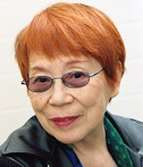
1995
朝倉 摂
ステージデザイナー
東京
Setsu Asakura (1922–2014), from Japan, began as a painter whose achievement was recognized with Belgium’s prestigious Salon de Printemps Prize. However, it was her work as an acclaimed stage and set designer that brought her international renown. She was honored in Hollywood and Japan with retrospective exhibitions tracing the achievements throughout her career, ranging from work for Greek and Kabuki classics to designs for contemporary American theater.
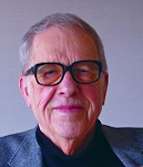
1993
ドナルド・リチー
映画評論家、作家
東京
Ohio-born Donald Richie (1924–2013) moved to Japan soon after World War II, and lived there for much of the rest of his life, save for a period of graduate study at New York’s Columbia University and a stint as curator of film at the Museum of Modern Art. Mr. Richie is best known for his groundbreaking writings on Japanese cinema and for being one of the first to introduce Japanese film to the West, and his numerous books on a diversity of subjects about Japanese life and culture have done much to interpret Japanese culture for Americans.
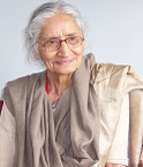
1992
カピラ・ヴァッツァヤン
ディレクター
インディラ・ガンジー国立芸術センター(ニューデリー)
Kapila Vatsyayan, a leading scholar of classical Indian dance and Indian art and architecture, was the founding director of the Indira Gandhi National Centre for the Arts. She is the author of many books and has served as a member of the UNESCO Executive Board and of the Upper House of Indian Parliament. She has also been a secretary to the Ministry of Education, Department of Arts and Culture, and in this role has been responsible for the establishment of many institutions of higher education in India.

1991
チョウ・ウェンチュン 周文中
ディレクター
コロンビア大学 米中芸術交流センター
Chou Wen-Chung is a composer of contemporary classical music who received his music training at the New England Conservatory and Columbia University. Mr. Chou has received numerous recognitions including two Guggenheim fellowships, a National Institute of Arts and Letters award, and a National Endowment for the Arts commission. He was the Founder-Director of the Fritz Reiner Center for Contemporary Music, serves as a member of the American Academy of Arts and Letters, and is an honorary member of the International Society for Contemporary Music. Mr. Chou’s compositions have been performed by orchestras throughout the world, including the New York Philharmonic, Chicago Symphony, San Francisco Symphony, and Berlin Philharmonic.
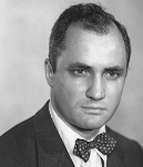
1990
シャーマン・E・リー
前ディレクター
クリーブランド美術館
Sherman Lee (1918–2008) was an American academic, writer, art historian, and expert on Asian art. Dr. Lee served as an art advisor to Mr. and Mrs. John D. Rockefeller 3rd, helping them build their exceptional art collection that was later donated to the Asia Society. In his earlier career, Dr. Lee was Curator of Far Eastern Art at the Detroit Institute of Arts, Associate Director of the Seattle Art Museum, Director of the Cleveland Museum of Art, the author of more than a dozen books, and organizer of some of the most important exhibitions of the late 20th century. The Ruth and Sherman Lee Institute for Japanese Art was founded in his honor at the Clark Center near Fresno, California.
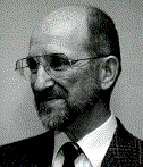
1988
ジェームズ・R・ブランドン
教授
ハワイ大学 ドラマ演劇学部
James R. Brandon (1927-2015) was a force in the development of Asian theater studies since the 1960s with his work on Southeast Asian, pan- Asian, and especially Japanese forms. Dr. Brandon was a Professor of Theater at the University of Hawaii beginning in 1968, and he helped build a program around the intersection of scholarship and the performance of Asian genres. He was known one of the most widely recognized and highly honored theater instructors anywhere in the world. The Japanese government has recognized him with the Order of the Rising Sun, Gold Rays with Rosette. Other honors he has received include Fulbright grants for research in Japan, the Fujio Matsuda Scholar Award, and the International Theatre Institute’s Uchimura Prize.
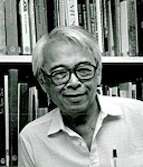
1987
ホセ・マセダ
理事長
フィリピン大学音楽学校ミュージックリサーチ学部
José Maceda (1917–2004) was born in Manila and studied piano and composition at École Normale de Musique de Paris in France. After returning to the Philippines to play professionally, he moved to the United States to study musicology at Columbia University and anthropology at Northwestern University. As an ethnomusicologist, Professor Maceda devoted much of his time to studying the music of the Philippines and Southeast Asia. He wrote extensively about his research for publications in North America, Europe, and Asia. Among his many honors were the Fumio Koizumi Prize for Ethnomusicology in Tokyo and the title of National Artist of the Philippines. The French government named him an Officier dans l’Ordre National du Mérite and a Chevalier de la Légion d’Honneur.
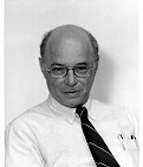
1986
ジョン・M・ローゼンフィールド
アビー・アルドリッチ・ロックフェラー芸術教授
ハーバード大学
John M. Rosenfield (1924–2013) was an American art historian with a specialization in Japanese art. In 1971, he was appointed the Abby Aldrich Rockefeller Professor of East Asian Art at Harvard University, where he served for more than twenty-five years as a professor and curator of Asian art. His other awards include the Smithsonian Institution’s Charles Lang Freer Medal for distinguished contribution to the knowledge and understanding of Oriental civilizations as reflected in their arts, the Yamagata Banto prize (2001), and the Order of the Rising Sun from the Japanese Government for his contributions toward fostering mutual understanding between the United States and Japan (1988).
ブランシェット・フーカー・ロックフェラー賞
ブランシェット・フーカー・ロックフェラー賞は、ACCの初代理事長でありジョン・D・ロックフェラー三世の妻であった氏に敬意を評して2009年に設立されました。ロックフェラー夫人は、夫のアジアの芸術分野への愛と、文化交流を通じてよりよい世界を創造するというビジョンを共有していました。このBHR賞はACCとともにアジアと米国における国際的な対話や理解、尊敬を育む活動に多大なる構成を残された社会貢献家を顕彰するものです。
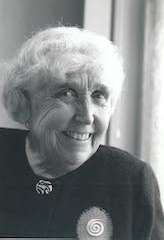
2019
エリザベス・J・マコーマック
名誉理事長
アジアン・カルチュラル・カウンシル
アジアン・カルチュラル・カウンシルの第一義としてある文化交流活動に惜しみない尽力と貢献を捧げたリーダーとして、エリザベス・J・マコーマックはACCの56年間の歴史になくてはならない存在です。22年間のACC理事長としての職務を含め、その強固な支援は、ACCの活動とその発展を揺るぎないものといたしました。
マコーマック氏がACCに代わって重ねてきたたゆまぬ努力によって、数多くの支援者と強固な支援者が輪が広がり、それによってACCへの継続的な支援が可能となりました。マコーマック氏はまた40年以上の長きにわたり理事の一人として支援をいただき、また個人としても200万ドル以上の支援をいただいたことで、幾世代にもわたるアーティストや研究者が世界中で繋がり合う機会を創出されました。

2018
ハンス・マイケル・ジェブセン
理事長
ジェブセン& Co., Ltd.
Hans Michael Jebsen first joined ACC’s Hong Kong Friends’ Committee in 2004 as Chairman. Establishing the Hans Michael and Désirée Jebsen Fellowship in 1997, he has supported 18 individual fellows in a variety of fields to further develop their artistic careers and grow their global networks. Mr. Jebsen has served on the ACC’s Board of Trustees since 2003 and became Founding Chairman of the ACC Hong Kong Foundation in 2015. His extraordinary gift of $20 million HKD enabled the establishment of the ACC’s Hong Kong Endowment to ensure future exchange opportunities for ACC’s fellows in perpetuity. Mr. Jebsen’s philanthropic leadership has inspired and created life-changing experiences for countless ACC artists and cultural specialists from China, Hong Kong and Macau.
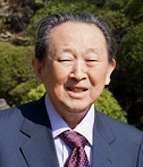
2012
堤 清二
理事長
セゾン文化財団
Seiji Tsutsumi (1927–2013) became involved with the work of the JDR 3rd Fund in the late 1970s, and became one of ACC's greatest advocates. In 1983, he established ACC's first office in Asia in Tokyo, Japan, and seeded the Japan-United States Arts Program with an endowment gift of $2 million. Because of his generosity, hundreds of artists and scholars from Japan, other parts of Asia, and the United States have been able to take part in ACC’s cultural exchange activities, pursue extensive programs of research and study, and develop their creative careers while building important relationships and global networks. Mr. Tsutsumi was a member of ACC's Board of Trustees for nearly thirty years, applying his love of the arts and inspired leadership to serve ACC's mission.
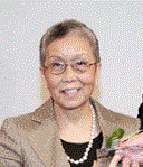
2009
ディアンナ・ルース・タク・ヤン・ルドガード博士
非常勤取締役
ハイサン・デベロップメント・カンパニー(香港)
Deanna Lee Rudgard was recognized for her great personal contribution to ACC’s work and as a representative of the Lee family and the Lee Hysan Foundation, which was ACC’s first Hong Kong donor. The Foundation was a key partner when ACC’s Hong Kong Arts Program was launched in 1986. Since then, the Lee Hysan Foundation has provided generous support enabling 44 arts professionals from Hong Kong to take part in ACC-designed fellowships in the U.S. The Lee Hysan Foundation’s endorsement of ACC has been pivotal, for this extraordinary support has attracted participation from other partners and ensured the development of a stable program that continues to thrive.
 ACC New York
ACC New York